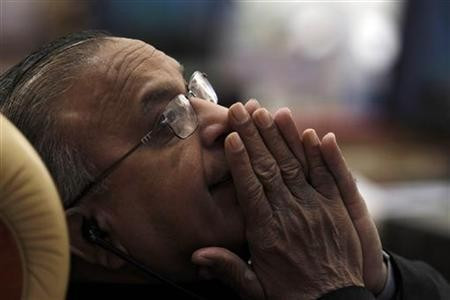Iran Sanctions Forces India To Demand Extra OPEC Oil: Will Rebalance Prices

The extra oil India is seeking from the Organisation of the Petroleum Exporting Countries after it axed imports from Iran due to US-led sanctions could rebalance world oil markets and push prices higher, according to some analysts.
Oil prices have tumbled over the last month, as slower demand and Opec oversupply continue to weigh on prices. Nymex Light Sweet Crude is currently trading at $83.83 per barrel while Brent crude is now under the $100 per barrel mark at $97.49 and is down 24 precent from its 2012 high.
"In the second half of this year, we could see the increased demand from India for Saudi oil and increasing demand from Japan and South Korea, help balance the market and take the pressure of prices," says Amrita Sen, oil analyst at Barclays Capital. "Currently, we are not seeing reductions in the data from the apparent squeeze on Iranian output but this will change in second half of this year."
As the US and the European Union tighten sanctions against Tehran over its nuclear program, India has revealed that it plans to cut oil imports from Iran by 11 percent to 310,000 barrels a day (bpd). In tandem, India's Oil Minister Jaipal Reddy is asking Saudi Oil Minister Ali-Naimi for 100,000 bpd more crude.
This week, Opec decided to retain its output limit at 30 million barrels a day but is currently still over supplying 1.6m bpd. Saudi Arabia has largely been to blame for the oversupply, as "(it) has not pared back on output, after the country increased production to make up for the shortfall in Libyan supply," said Sen.
Al-Naimi u-turned on comments that he said at a conference in Australia last month on how he wanted Brent oil prices to trade at "around $100."
Despite, oil prices largely retreating since then, he has called for an increase in the industry group's output target, before this weeks Opec meeting.
"Recent oil price weakness has seen Brent crude and West Texas oil both fall a quarter from recent highs," says Andrew Latto, senior analyst at research house Fat Prophets. "This has created pressure from many members of Opec for the cartel's biggest producer, Saudi Arabia, to cut output. However, Saudi Arabia isn't playing ball with the country's production at 30-year highs."
For more energy and Opec related news, don't forget to check out IBTimes UK
© Copyright IBTimes 2025. All rights reserved.






















